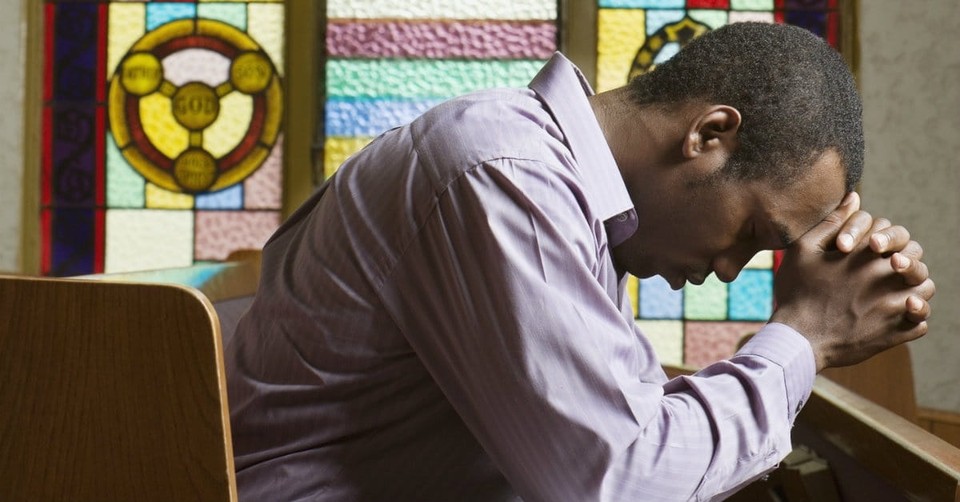4 Reasons Every Church Service Needs a Time of Confession

I don’t get out much.
That is, I’m a church pastor and so I don’t often get the chance to visit other churches. So when I took a sabbatical a couple of years ago, I took the opportunity to attend lots of different churches. There were lots of things I learned and loved, and some new ways of doing things that I thought I could adapt to my own meetings. But it quickly became clear that corporate confession in church—that is, all saying a prayer of confession together—had become a rarity.
I can understand why. We think that people just drift off mentally when we all start saying something out loud together. Some people think it sounds a bit cultish. And it’s just, well, a bit gloomy. And so it drifts off the agenda.
But I think this is bad… Really bad.
Confession is inherent to the Christian life. We approach the Lord as sinners who are loved and forgiven as his children. That’s simply who we are, according to the Christian gospel. If we neglect either of these truths, our Christian life is going to get distorted pretty quickly—so we want to remember both when we gather as church.
Here are four reasons why having a corporate confession matters:
1. It is worship that the Lord delights in
“These are the ones I look on with favor: those who are humble and contrite in spirit, and who tremble at my word.” (Isaiah 66:2)
Every church is going to say that it worships God when it gathers. But we tend to associate worship with the more upbeat moments of the gathering—singing, inspiring preaching, etc. Yet one thing that honors the Lord and worships him rightly is humble confession; a contrite spirit. He looks in favor upon those who come before him and say, “We’re truly sorry and repentant.”
Why would we ignore something that pleases God and moves him to look on us with favor?
2. It is the shape of Christian living
The whole Christian life is one of repentance and faith. Repentance should deepen our delight in the gospel. Without it, our thanks for the cross is a vague pleasure in someone being kind to us. When we are penitent confessors we are acknowledging our deep need for Jesus.
Confession also allows us to be honest and real with ourselves and one another. We don’t have to pretend that we’re good people. We can admit that we’ve done all sorts of things wrong that week, which means that we only approach the Lord through the forgiveness won by Christ.
So we come to confession with both regret and relief. A deep regret at how we’ve failed our heavenly father but a wonderful relief that he still loves us. It’s in this sense that we always live at the foot of the cross—conscious of our sin but praising our Savior.
I’m also conscious that, for some believers, Sunday really is where they meet with God. We may wish that everyone had a daily time of Bible reading and prayer, but the reality is that many, perhaps most, will limp through the week with a perfunctory prayer life. So, it’s essential that we help those people to live an authentic Christian life. That means confession and then words of gospel assurance must be built into the pattern of our services.
3. It prevents self-righteousness
Corporate confession is a great leveler. It’s something every person in church does and so we’re declaring that all of us have fallen short of the glory of God and all of us need to come for forgiveness. A corporate confession prevents our “inner Pharisee” from looking around the room and saying: “God, I thank you that I’m not like…”
The corporate confession is a reminder that we need to be gracious to one another. Some of us hide our sin pretty well. But we all still have it.
And it’s important too for those among us who are not yet Christians. If the believers they see are genuinely penitent, and freely confessing to our sins, yet joyously rejoicing in our forgiveness, we are modeling a gospel life to them, and will be far away from the caricature of “hypocritical Christians”.
4. The Bible models it
There are some obvious moments in the Bible when the people of God gather and express their collective guilt:
“The Israelites gathered together, fasting and wearing sackcloth and putting dust on their heads … They stood in their places and confessed their sins.” (Nehemiah 9:1)
Then there a number of Psalms which were personal confession that have been turned into corporate songs to be sung when believers gather:
“For the director of music. A psalm of David. When the prophet Nathan came to him after David had committed adultery with Bathsheba. Have mercy on me, O God, according to your unfailing love; according to your great compassion blot out my transgressions. Wash away all my iniquity and cleanse me from my sin.” (Psalm 51 v 1-2)
“You, God, know my folly; my guilt is not hidden from you.” (Psalm 69:5)
But perhaps your objections remain… so we’ll look at those in part 2 tomorrow, and make some suggestions for some fresh and creative ways to conduct corporate confession.
This article originally appeared on TheGoodBook.com. Used with permission.
Matt Fuller’s new book, Perfect Sinners: See Yourself as God Sees You, explores how Christians live “in the tension” of being both perfect saints and wicked sinners.
Matt Fuller is the Senior Minister at Christ Church, Mayfair in central London. Before working as a minister Matt was a secondary school teacher teaching history and politics. He is married to Ceri and they have one son Nathan.
Image courtesy: ©Thinkstock/HillStreetStudios
Publication date: May 4, 2017
Originally published January 03, 2019.







